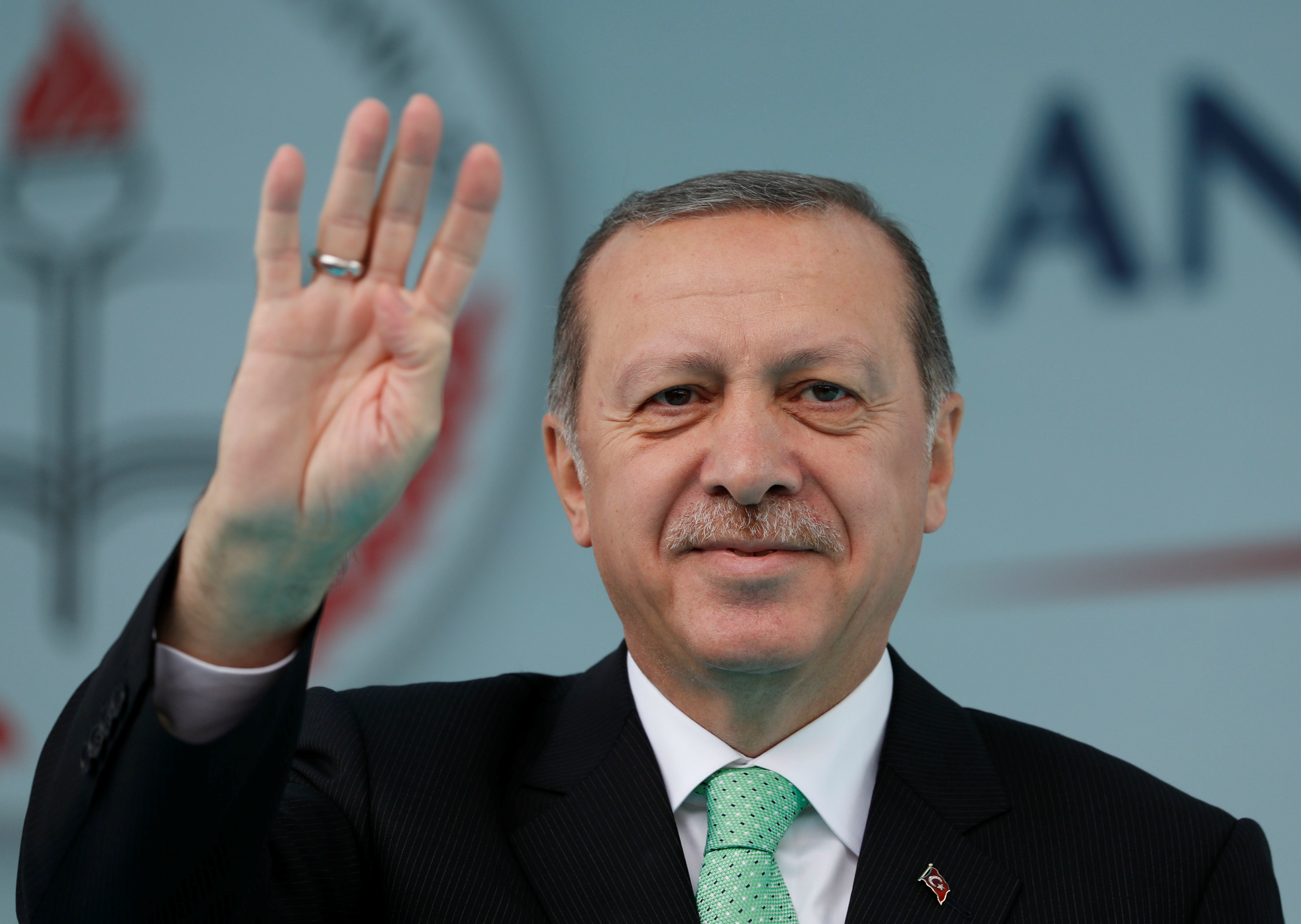Turks will head to the polls in a pivotal snap vote on 24 June. Recep Tayyip Erdogan, the country's charismatic yet divisive president, looks poised to win sweeping new powers, though the opposition is banding together to challenge his control of parliament. Meanwhile, the country's fast-growing economy is starting to falter. Here are some of the most important developments to watch:
Overhaul of political system
In April 2017, voters narrowly approved a transition from a parliamentary system to one in which most political authority is concentrated in the presidency, with few checks and balances. This power will be conferred on the winner of the upcoming vote, likely to be Erdogan. Though the country is nearly evenly divided between the president's supporters and his critics, the latter are less organized, and Erdogan is more popular personally than any of his rivals.
Furthermore, a state of emergency has been in effect since an attempted coup in July 2016, allowing the government wide latitude to crack down on political opponents and independent news sources, and an aggressive campaign of cash handouts—including bonus payments to pensioners and a debt amnesty—has been deployed to motivate core voters of Erdogan's Justice and Development Party (AKP).
Opposition starting to coalesce
Though the AKP and its allied National Action Party (MHP) are expected to win a majority in parliamentary elections that will be held at the same time as the presidential vote, that outcome is more uncertain, as Erdogan's party is much less popular than he is. The MHP will benefit from a recent legislative change that will allow allied parties to skirt the 10% vote threshold for parliamentary representation, but opposition parties are also poised to benefit.
In an unprecedented display of cooperation, the Republican People's Party and three others have formed an alliance to assure themselves parliamentary representation. Together with the pro-Kurdish Peoples' Democratic Party (HDP), the five would have an outside chance of obtaining a majority. But given their diverse ideologies, this bloc of opposition parties would find it difficult to cooperate on a constructive policy agenda, likely focusing instead on blocking presidential decrees and budget proposals. Deadlock could result.
Economic slowdown
After a couple of years of rapid growth, the economy is flashing warning signals. Inflation is in the double digits, two large conglomerates have entered talks to restructure their debt, and the currency has been plumbing new lows against the dollar. The last development is the most important politically, as many households and corporations hold savings in foreign currencies; many corporations have also borrowed heavily in foreign currencies.
The signs of a coming economic slowdown, combined with a desire to throw the opposition off balance, likely led Erdogan to call the elections nearly a year and a half ahead of schedule. Leading up to the vote, any meaningful deterioration in the economic climate, especially a further weakening of the lira that the central bank is unable to stem, would increase the odds that the opposition gains control of parliament.
The day after
Concerns over the fairness of the elections coupled with the high stakes of the transition to a presidential system will likely lead to allegations of fraud on election day and possibly even bouts of dangerous social unrest. Still, a sense of continuity and stability is expected to settle in with an Erdogan victory, and authorities are likely to lift the state of emergency.
But it will be uneasy truce for the battling forces in Turkish society. Erdogan is unlikely to relax his strong grip on power, abandon his divisive policies, or scale back his populist rhetoric. To a certain extent, the ruling AKP will remain in campaign mode ahead of local elections in March 2019, leading to strong spending on roads and other high-visibility infrastructure projects, as well as handouts of coal and food over the winter months.

 Turkish President Erdogan attends opening ceremony of Recep Tayyip Erdogan Imam Hatip School in Istanbul. REUTERS.
Turkish President Erdogan attends opening ceremony of Recep Tayyip Erdogan Imam Hatip School in Istanbul. REUTERS.